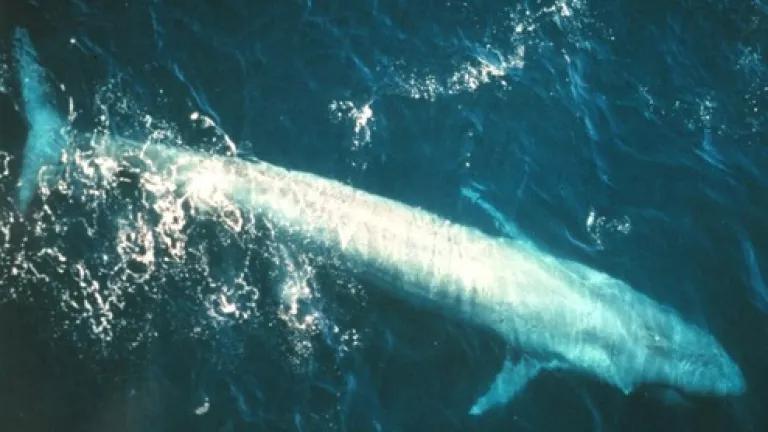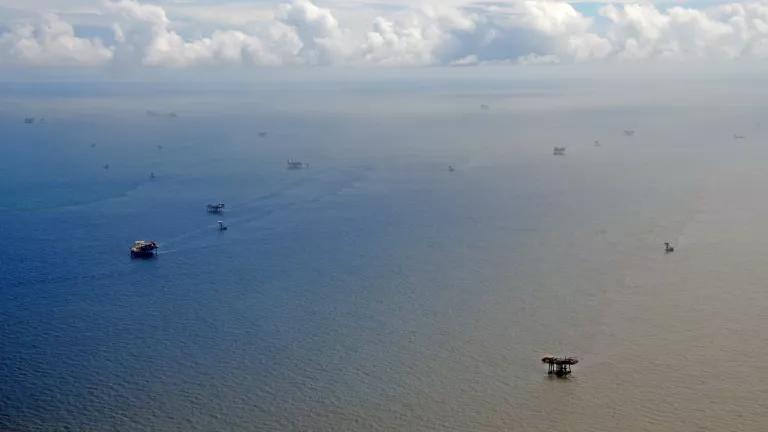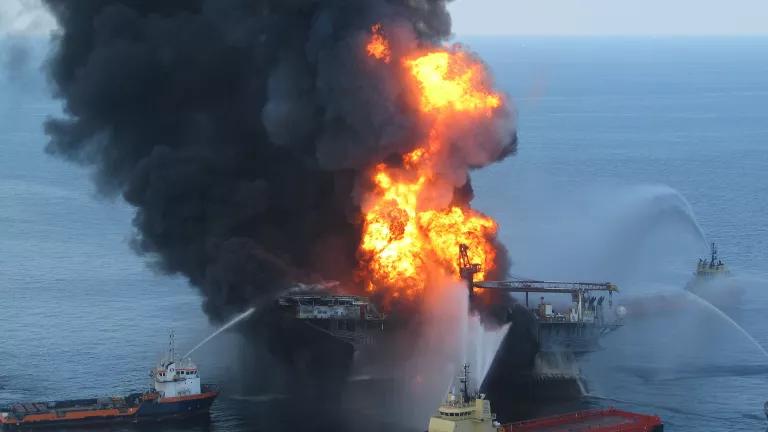
If, like me, you're desperately concerned about the fate of the oceans, probably the most hopeful development this year is President Obama's launch of a new National Oceans Policy. The task force he convened in June recently came out with its Interim Report and, as my colleague Sarah Chasis wrote at the time, there's much to celebrate. Still, in a high-level document, there were bound to be a few omissions. One of the most salient - as a group of scientists said in a path-breaking statement released today - is the growing problem of undersea noise.
Navy sonar has received the lion's share of media attention, but it's not the only noise-maker in the sea. Biologists are deeply concerned about the gamut of sources that are contributing to this rapidly rising form of pollution: not just sonar, but also airguns used in oil-and-gas exploration, supertankers and large cargo ships, pile-drivers and dredgers used in construction, and on and on. When whales turn up on the beach with bleeding around their ears, we know there's a serious problem; ironically, the chronic noise that's destroying the ability of whales and other species to hear, feed, and find mates is more of a silent killer.
Today's statement from a group of marine scientists describes the problem eloquently:
The ocean is a world of sound. Animals such as whales, dolphins, and fish depend on hearing for communicating, foraging, finding mates, detecting predators, and maintaining family and social groups. Human activity is rapidly altering the ocean's natural acoustic habitats. Industrial and commercial underwater noise propagates over enormous distances, affecting millions of square miles of ocean. For example, background noise at the same low frequencies vital to many marine species has increased 100-fold in some locations over the last 50 years. This growing fog of noise is shrinking the perceptual world of whales and other marine life, undermining their ability to "see" with sound. Chronic noise exposure is a recently recognized, largely hidden threat that can reduce long-term survival rates, while exposure to loud noise can result in injury, and even death in certain circumstances. Today few places in the world's oceans remain free of noises from human activities.
The profile of the issue is almost certain to grow. At this moment, Interior Secretary Salazar is deciding whether to open portions of the outer continental shelf to new oil and gas exploration; some states, like Florida, are considering drilling right along the coast; and environmentalists fear a new and untrammeled Gold Rush in offshore development.
With all of this activity looming, the scientists are clear about what's needed. They urge President Obama towards an ocean policy similar to our successful "no net loss" of wetlands policy of the 1990s: "that no net increase in ambient noise occurs in U.S. coastal waters and that a schedule be established to realize substantial reductions in ocean noise by 2020." Remarkably, they write, many of the tools needed to curb the problem are currently available or soon will be.
What is needed - of course and as always - is the political will. Inclusion of undersea noise in the National Oceans Policy would make a very good start.



